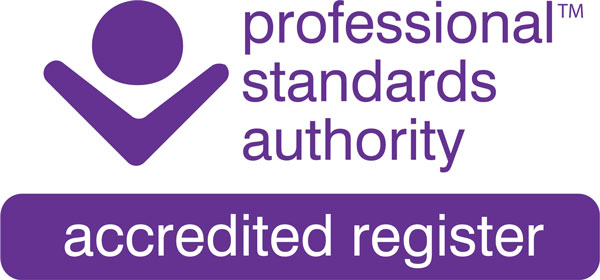Urgent Protection Policy
Addressing dangerous actions by an HG therapist
If it is informed that the actions of a Registrant are putting at risk, or are likely to put at risk, the safety or wellbeing of a client or other member of the public, the HGI Registration and Professional Standards Committee (RPSC) will take immediate steps to mitigate that risk.
Such actions include: breach of professional boundaries, manipulative or predatory behaviour, abuse of trust and professional incompetence likely to cause harm to clients.
Urgent Protection Process
Allegations concerning any harmful actions by HG therapists can be made by clients themselves or concerned third parties, such as relatives/carers, friends or professionals with whom the client is in contact. A concern may also be raised by another member of the HGI via the HGI Reporting of Wrongdoing policy or by a therapist’s supervisor.
Notifications of concern regarding risk to clients and other members of the public can be communicated to the HGI office by telephone on 01323 811662; by email to [email protected]; or by letter sent to the Human Givens Institute at: Church Farm Lane, Chalvington, East Sussex, BN37 3TD, UK.
On receipt of a notification, the HGI Membership Secretary or, in their absence, another member of HG staff will immediately telephone a co-chair of the RPSC or the Complaints Coordinator, alerting them to the situation.
Where the individual notifying the concern believes there is risk of harm to a child or vulnerable adult, the HGI Membership Secretary will advise them to contact their local social services department, or if necessary, the police.
On receipt of a notification of concern, the RPSC Complaints Co-ordinator will, at the earliest opportunity, communicate with the concerned party, obtaining further information as required and assuring them that appropriate action will be taken to mitigate the risk in question.
Mitigation of Risk
At the earliest opportunity, two or more members of the RPSC, including one co-chair, will decide how best to mitigate the identified risk. If a therapist appears to pose a risk to clients or other members of the public, the RPSC will put in place for 30 days (with the option to extend as necessary) an interim order to suspend the therapist from practising (see HGI Indicative Sanctions Guidelines). One co-chair will communicate to the therapist concerned why this action has been taken and also inform the individual who notified the concern.
The therapist will be instructed that they must not practise as a therapist for the duration of the suspension order and that any breach of this condition will result in their removal from the HGI Register and termination of their membership of the HGI. The therapist will be called upon to answer the allegations and have any rebuttal noted.
Notice that the registrant’s practice has been suspended for an alleged breach of the HGI Ethics and Conduct policy, will be displayed on the publicly accessible Current Upheld Complaints page of the HGI website.
If the RPSC decides that there is a case to answer, an adjudication panel will be formed to review, in the interests of proportionality and fairness, the continued suspension of a therapist and, if deemed the correct response, postpone the interim suspension. If the concern is upheld, the panel will determine on the appropriate sanction, as set out in the HGI Indicative Sanctions Guidelines.
Addressing risk to children, uncovered by HG therapists
The HGI Policy and Guidelines for Therapists Working with Children sets out the action that therapists must take when they become aware that a young client may be at risk of harm.
Concerns must be referred:
- if a child is in immediate danger, e.g. if witnessed being assaulted by a parent, carer or other person. Therapists should ring the public alarm number (in the UK, 999) and alert the police;
- if a child is believed to be at risk of abuse and/or neglect. It is imperative to inform the local children’s services or protection authority immediately – they may require completion of a referral form within 24 hours. (If a family is deemed to need support but there are no specific signs of abuse, a referral to an authority such as children’s services should be made but will require the family’s requisite consent).
Making a referral
- Basic information on the child/children concerned must be obtained and, if possible, about any other adults or children living in the household.
- Concerns must be specific. It is not enough to say a child is not dressed properly or that there are signs of physical abuse – details are required.
- Therapists should include any other information that may be relevant, such as their own involvement with the child and the family, how many times they have seen them and what they have observed on those occasions, etc.
Addressing risk posed by clients to themselves or others
Guidelines on managing risk of suicide in clients is available to HG therapists in the Professional Members Area of the HGI website
The HGI makes its therapists aware of their duty of disclosure where indications of risk to clients, or others, emerge during the course of therapy. The HGI Confidentiality Agreement, which is signed by clients at the commencement of treatment, also makes this clear to clients in the following statement:
“I understand that all information shared with my therapist will remain confidential within their service and will only be disclosed with my consent, except where they believe there may be a risk either to myself or others, or where there is a legal duty of disclosure.”
Last updated: April 2025
First published: Feb 2016

